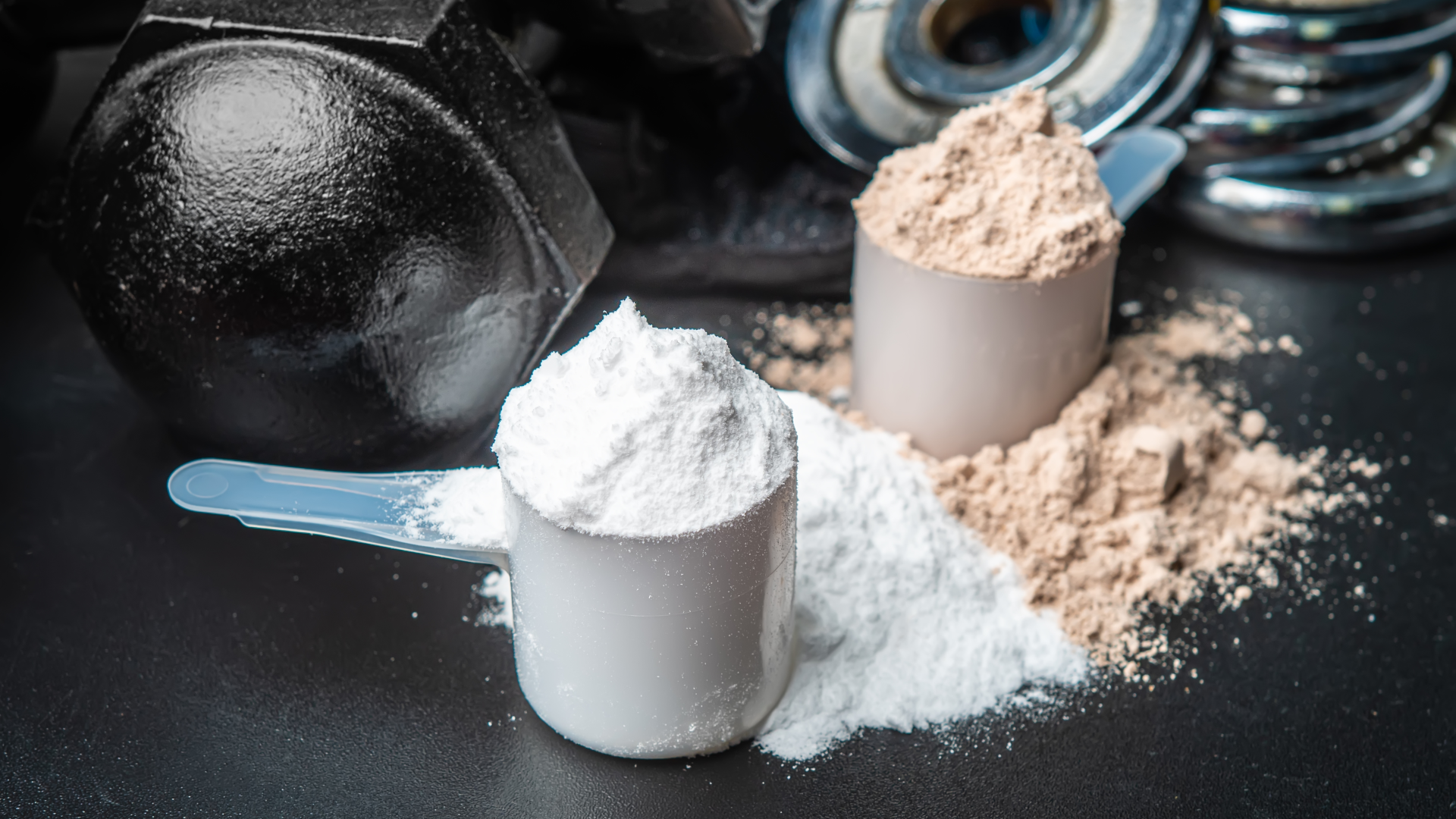Get straight to the point… |
We all know that protein plays a huge role in bulking up, and there’s plenty of scientific evidence to back this up, and it’s essential to keep this as part of your bulking supplementation.
But we’re all looking for that extra “push” to take us to the next level.
Are we missing out on something?
Protein supplementation is necessary to keep things heading in the right direction, but more importantly, you must ensure you’re looking after your overall health.
Vitamin supplementation is vital to ensure your body continues functioning as it should and coping with the excess stress of pushing yourself to the max.
One of the supplements being talked about right now is Vitamin D.
In this blog; we’re exploring the role of Vitamin D in helping you build muscle to figure out if you need supplementation.
- Related content: What is the best way to get protein into your diet?
What is Vitamin D?
Often known as the “sunshine vitamin” because it can be absorbed through the sun’s rays, vitamin D supplementation is particularly popular with those who don’t spend much time in the sun.
Vitamin D is best known for its role in bone health and immune function. It helps the body absorb and retain calcium and phosphorus. Both are essential for strong bones. It has also been shown to reduce inflammation and infections.
Vitamin D helps to regulate the amount of calcium and phosphate in the body- the nutrients needed to keep bones, teeth and muscles healthy.
How do you get vitamin D?
It’s commonly known that our bodies can produce vitamin D when out in the sunshine as they become exposed to ultraviolet light.
But, Vitamin D supplements are particularly popular in countries lacking sunlight or that have high pollution. Sunlight is the most natural way to get it, so those countries which are not so exposed to the sun tend to be the most vitamin D deficient.

Approximately 1 billion people worldwide are affected with vitamin D deficiency, and around 50% of the entire global population is lacking in vitamin D.
In addition to this, a CDC study found that vitamin D levels generally decreased as age increased, making it all the more important to keep your vitamin D levels topped up.
Dieting is the first step to supplementation. As far as food is concerned, only a select number naturally contain vitamin D. These include fatty fish and eggs. Others, such as milk and orange juice, have been fortified with it.
Those not getting enough vitamin D through these sources can use supplements all year round.
The Benefits of Vitamin D supplementation…
Why such an emphasis on this fat-soluble vitamin?
Research has linked vitamin D to many health benefits:
- It helps your cardiovascular system- Vit D deficiency may be linked to heart disease and an increased risk of high blood pressure. Evidence suggests that increasing vitamin D levels will decrease the risk of cardiovascular disease, coronary artery disease and stroke.
- It increases muscle strength- Those taking vitamin D supplements tend to progress more quickly when building muscle. Higher vitamin D levels in your system are associated with reduced injury rates and improved performance.
- Supports immune health- vitamin D has been shown to prompt a solid antibacterial response from the innate immune system (our first line of defense), which kills pathogens. It is necessary to ensure the proper functioning of your immune system as this is your body’s first line of defense against infection and disease.
- Prevention of the common cold- Taking vitamin D supplements may help reduce the risk of upper respiratory tract infections. People with lower vitamin D levels are, therefore, more likely to have a common cold.
- Regulates mood and depression- it plays a vital role in regulating mood and decreasing the risk of depression. A lack of vitamin D can lead to symptoms such as mood changes, fatigue, anxiety and insomnia.
- Reduces the risk of diabetes- vitamin D may help reduce the risk of both types of diabetes. Vitamin D is believed to help improve the body’s sensitivity to insulin
- May lower the risk of certain cancers- Maintaining adequate vitamin D levels may have some benefits for preventing cancer. Vitamin D may decrease tumor invasiveness, leading to reduced cancer mortality.
- It can help you live longer- Ensuring you have adequate vit D levels may slightly reduce your risk of dying prematurely. This is due to it’s numerous health benefits.
What happens if you don’t get enough vitamin D?
Individuals lacking vitamin D may experience tiredness, aches, and pains. They may also encounter bone or muscle pain or weakness in their bones, which can eventually lead to injuries such as stress fractures.
Here are just a few of the many potential issues caused by vitamin D deficiency.
- Osteoporosis- These fragility-related fractures occur when even a mild impact can cause a back, hip or other bone fracture.
- Fatigue- Fatigue is a knock-on effect of other potential vitamin D deficiency causes. Stress, depression, and a lack of sleep can all cause tiredness.
- Height loss. With a lack of bone strength comes the potential to shrink in size! People with a lack of vitamin D can lose height over some time.
- Receding gums. Lack of Vit D can also affect your tooth enamel and overall gum health. It can cause teeth to be weaker and more likely to develop cavities. Gum disease is also more prevalent in adults with low vitamin D.
- A curved spine. A lack of bone strength means your spine will also be weak, leading to a weakened spine and bad posture.
- Lower back pain. Vitamin D helps maintain bone health by improving your body’s absorption of calcium, and a lack of it can cause bone pain, particularly in the lower back area.
What role does it play in muscle growth?
Higher vitamin D levels, particularly before exercising, resulting in less muscle fatigue and better post-exercise recovery. You can work out for longer; a longer workout means faster progression.
When vitamin D is absorbed into the body, it’s converted to a steroid hormone, so it’ll be no surprise that it affects muscle tissue. It binds to specific receptors found on muscle cell membranes, and when it binds to these receptors, it enhances protein synthesis, which is the buildup of muscle protein.
These receptors may be responsible for an increase in muscle growth; therefore, ensuring you have an adequate amount of vitamin D in your system will mean that these receptors will be active and ready for optimal muscle growth.
There are still plenty of studies to be conducted regarding the link between muscle growth and vitamin D, but regardless of muscle building, getting enough vitamin D for other health considerations is still highly recommended.
How to test your vitamin D levels
It’s a good idea to check and see if your vitamin D levels are low, especially if you live in a country or city with little sunlight.
You can ask your Physician to carry out a blood panel to check Vit D levels or get an at-home pin prick test to see yourself.
Once you know your low levels, you can then look into supplementation. As Vitamin D is fat-soluble, high levels can cause toxicity - so it’s a good idea to get a baseline before taking any supplements.
Do you need to supplement vitamin D?
It’s essential to look after every aspect of your physical well-being; vitamin supplementation is no exception and Vitamin D has many benefits.
Without vitamin D, your bones can become soft, thin and brittle. Insufficient vitamin D is also connected to numerous issues, such as fatigue and bone weakness.
If you are working out regularly, you must have sufficient vitamin D in your system to enhance protein synthesis efficiently. Ensuring you have enough vitamin D in your system will mean that you can exercise for longer, and your recovery periods will be shorter.
Vitamin D supplements are the answer if you don’t get enough vitamin D through sunlight or dietary sources.
Related Articles
Does Whey Protein Make You Gain Weight?
Do protein shakes help with weight loss?



